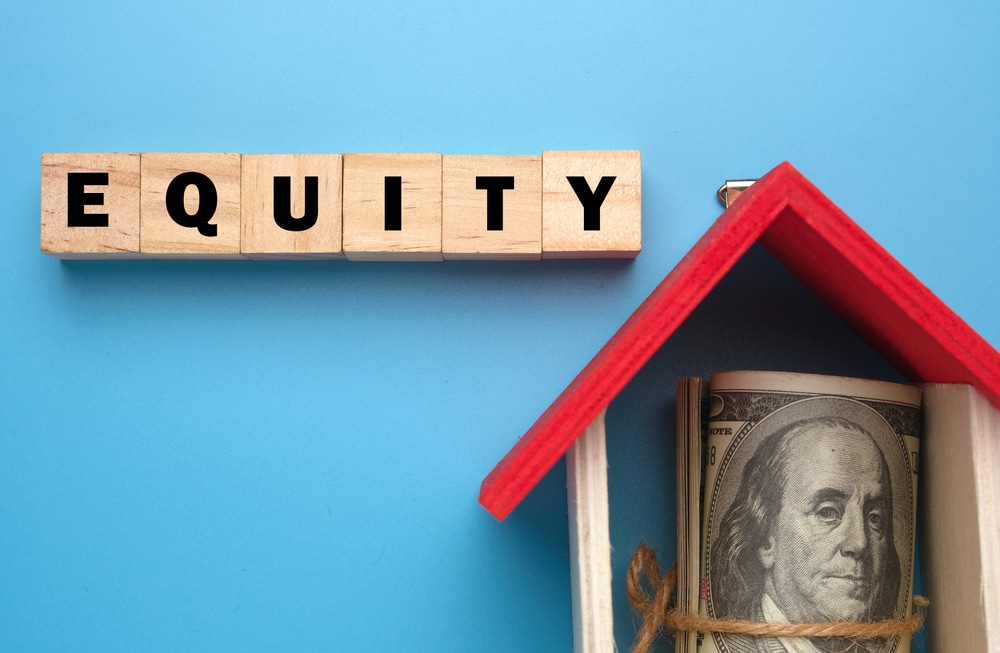Home equity loans can be used to finance all sorts of things, such as renovations, education, or even starting a new business. Before you apply for one, however, make sure you understand the process and what it involves. This way, you’ll be able to take full advantage of the loan and won’t end up regretting your decision in the future. Read on to learn more about home equity loans and how to use them properly!
What Is A Home Equity Loan?
The term “home equity loan”, “equity loan”, “home equity installment loan”, or “second mortgage” refers to a type of debt that homeowners can receive by borrowing against the equity in their homes. Home equity loans are usually fixed-rate, whereas home equity lines of credit (HELOCs) are generally variable-rate. The loan is based on the difference between the home’s current market value and the homeowner’s mortgage balance due.

The Ins And Outs Of Home Equity Loans
The home equity loan functions similar to a mortgage, hence the name second mortgage; the home’s equity serves as collateral for the lender. Approximately 80% to 90% of the home’s appraised value will determine how much a homeowner can borrow based on a combined loan-to-value (CLTV) ratio. As well as the amount of the loan and the rate of interest charged, the borrower’s credit score and payment history are also factors.
Conventional home equity loans follow the same rules as a conventional mortgage. They both have set repayment terms and make fixed payments covering both principal and interest. Likewise, as with any mortgage, if the loan is not paid off, the house could be auctioned off to pay the remaining debt.
Home equity loans can help you convert the equity you’ve built up in your home into cash, particularly if you invest that cash in renovations that will increase the value of your home. If real estate values decline, you may end up owing more than the house is worth.
When you relocate, there’s a chance you will lose money on the sale of your old home or be unable to relocate at all. It’s best not to resort to charging new items on credit cards and instead make a point of not spending what you don’t have. Before doing something risky to your home, weigh all of your options.
The Benefits Of A Home Equity Loan
If you know what you want to do with the money you borrow, an equity loan might be the best idea. This type of loan means you are guaranteed a set amount from the beginning and you get the money at the closing.
For responsible borrowers, home equity loans provide an easy way to get cash. A loan with low-interest rates and possible tax deductions is a good option if you have a steady, reliable income source and can repay the loan.
Home equity loans are easily obtained because it is a type of secured debt. To determine your creditworthiness and debt-to-equity ratio, a lender runs a credit check and an appraisal on your home.
Even though mortgage interest rates are higher on home equity loans than on credit cards and other consumer loans, the rate is much lower than on credit cards. In light of that, consumers are typically borrowing against the value of their homes via a fixed-rate home equity loan to settle credit card debt.
The Drawbacks
The main issue is that they seem like an easy solution for a borrower who is caught in a cycle of perpetual spending, borrowing, spending, and adding to their debt. As this is such a common cycle, there is a term for it restructuring credit, or taking out a loan to pay off debt and free up more credit. Then that credit is used to make additional purchases.
Recurring borrowing causes a cyclical escalation of debt that frequently causes debtors to apply for home equity loans that offer an amount of up to 125% of the borrower’s home equity. This type of loan often comes with steeper fees For one thing, because the borrower has taken out more money than the house is worth, the loan is not fully secured by collateral. On top of that, interest paid on the portion of the loan that is above the value of the home is never tax deductible.
There is some temptation to borrow more than you need when applying for a home equity loan because you only get the payout once and don’t know if you’ll qualify for another loan in the future.
When you are contemplating a loan worth more than your home, you might want to take a reality check. Did you struggle to live within your means at a time when you owned 100% of your home? It would be unrealistic to expect to be better off when you increase your debt by 25%, plus interest and fees. This could lead to bankruptcy and foreclosure.

The Requirements Of Home Equity Loans
Both home equity loans and home equity lines of credit have pros and cons, so you should consider your needs and how each option would fit your budget and lifestyle. Home equity loan requirements and home equity line of credit (HELOC) requirements are similar regardless of which type of loan you select.
Lenders have different requirements, but you generally need:
- You have a certain percentage of equity in your home
- Exceptional credit
- Low debt-to-income (DTI) ratio
- Income that is sufficient
- Good payment history
Although it is possible to get a home equity loan without meeting these requirements, if you don’t meet them you’ll be stuck with a much higher interest rate.
The Amount You Can Borrow Depends On Your Situation
A home equity lender may give you up to 85% of the appraised value of your home, less the outstanding balance on your first mortgage, based on your creditworthiness (income, credit rating, etc.). The lender should tell you the term and minimum withdrawal requirement for the home equity loan, and whether there are minimum or maximum withdrawal requirements after the loan is opened. Make sure you know how you can access your credit line: by check, credit card, or both.
As well, be sure to find out if your home equity plan sets a specific time in which you can take withdrawals from your account. If it expires, you might be able to renew your credit line. If you cannot, you will not be permitted to borrow any more money. And, in some plans, you will have to pay your entire outstanding balance. Some may let you repay the balance over a fixed period of time.
Should You Consider One?
Getting a home equity loan, also known as a HELOC, is often a wise decision if you need money to fund a home improvement project or consolidate high-interest debt. This is because HELOCs are secured by your home and therefore, have lower interest rates than unsecured loans such as credit cards or personal loans. This means that home equity loan rates, for example, are typically between 3% and 12%, depending on the lending institution, the loan amount, and the credit worthiness of the borrower. Credit card rates are typically over 16%.
Also, if you use a home equity loan to “buy, build, or substantially improve” your home, you may be able to deduct the interest from your taxes.
The downside is that if you default on your home equity loan, your home can be repossessed by the lender. Make sure you have a solid repayment plan before you get a loan that uses your home as collateral.
Using A Home Equity Loan
There are few restrictions on how you can use your home equity, but there are a few good ways to make the most of it.
Home improvements
Upgrades can increase a home’s value and attract more interest from prospective buyers when you sell it. Home renovations is one of the most common reasons for homeowners to borrow against their homes.
Consolidating Debt
An Equity Line of Credit, or HELOC, is often used by homeowners to take out loans against their property and therefore pay back the remaining balance of the home equity at a lower interest rate. For example, they may use a HELOC to pay off their car loan or to buy new furniture.
Emergency Expenses
When you’re in a difficult position – when you’re out of work or you’re struggling with large medical bills – a home equity loan might be a sensible idea to tide you over. Just be sure that you have a backup plan, or that your situation is temporary, before you apply. If you are using a home equity loan or a HELOC to cover an emergency expense, then this can lead to serious debt if you don’t have a plan for paying it back. Even though you might feel a sense of security when you think about using your home equity to cover an emergency, you’ll have to have set up and start contributing to an emergency fund as well.
Business & Startup Expenses
When you have a business that requires more capital to grow, you might be able to save money on interest by taking equity out of your home instead of taking out a business loan.You should run the numbers on your business before committing to this action. Just as with investing from your home equity, a return on investment in a business is not guaranteed.
Lenders and financial advisers mostly agree that borrowing against home equity for unnecessary expenses such as an extravagant vacation or a fancy luxury car is the worst idea. If you can avoid getting into debt, try coming up with a plan for paying for the fun but necessary costs than resorting to borrowing from your house.
With that in mind, don’t borrow more than you need, don’t overspend and don’t take on excessive risk by investing too much of your home equity in a frivolous purchase.
Final Remarks: Should You Consider A Home Equity Loan?
If you know how much equity you need to pull out and want the security of a fixed interest rate, a home equity loan can be a better choice financially than a HELOC. Borrowers should use caution when financing home repairs or consolidating debt. It’s very easy to end up underwater on a mortgage if too much equity is taken out, leaving a borrower with ruined credit and a home in foreclosure.





